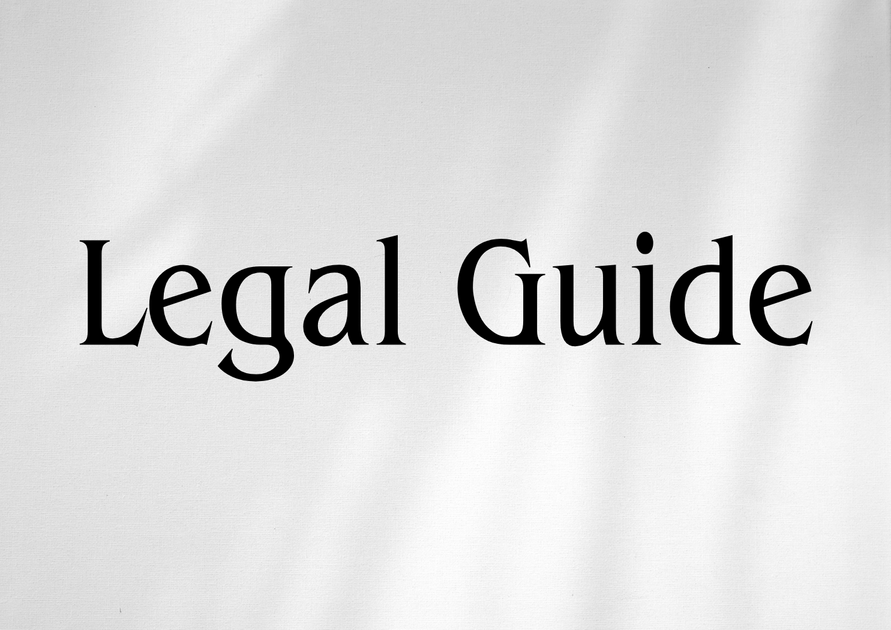Introduction
In an era marked by rapid globalisation and increasing aviation demands, cross-border aircraft finance has become a pivotal topic for UAE businesses, financial institutions, and legal professionals. The United Arab Emirates stands as one of the world’s leading aviation hubs, with Dubai and Abu Dhabi both playing critical roles in the global air transport sector. As the aviation industry expands, so do the complexities of aircraft acquisition, leasing, registration, and financing—necessitating a robust understanding of relevant UAE legal frameworks, especially in light of significant 2025 legislative updates.
This in-depth article examines the legal landscape governing cross-border aircraft finance within the UAE, analysing recent changes brought by the Federal Decree-Law No. (20) of 2023 Concerning the Use and Registration of Aircraft, and other relevant regulations. With increasing international investment and new compliance expectations, mastering the evolving regulatory environment is essential for structuring secure, successful aircraft transactions. The following consultancy-grade analysis explores practical implications, statutory requirements, compliance strategies, and forward-looking recommendations for aviation stakeholders in the UAE.
Table of Contents
- Overview of UAE Aircraft Law 2025: Legislative Landscape
- Core Regulations Shaping Cross-Border Aircraft Finance
- Financing and Leasing Models: Legal Approaches and Risks
- Ownership, Registration, and Mortgage Structures
- Case Studies: Cross-Border Transactions in Practice
- Compliance Risks, Penalties, and Strategic Insights
- Future Trends and Legal Outlook for UAE Aviation
- Conclusion and Strategic Recommendations
Overview of UAE Aircraft Law 2025: Legislative Landscape
Federal Decree-Law No. (20) of 2023: Driving Change
One of the most significant updates in the UAE’s aviation legal framework is the implementation of Federal Decree-Law No. (20) of 2023 Concerning the Use and Registration of Aircraft (Federal Legal Gazette, Vol. 745, 2023). This law replaces several earlier provisions on the registration, operation, and transfer of aircraft, and aligns the UAE’s commercial aviation sector with international practices, such as those set by ICAO and the Cape Town Convention. The law addresses:
- Registration protocols for aircraft owned or operated by UAE nationals and entities.
- Mortgage and financing procedures applicable to locally and internationally registered aircraft.
- Liability regulations for lessees and financiers in cross-border operations.
- Jurisdiction of UAE courts on disputes involving UAE-registered and foreign aircraft.
Key Regulatory Bodies
The administration of aircraft registration, operation, and finance in the UAE is managed by several entities, most notably:
- UAE General Civil Aviation Authority (GCAA)
- Dubai Civil Aviation Authority (specific to Dubai-registered entities)
- Ministry of Justice (for legal enforcement and registration of mortgages)
Core Regulations Shaping Cross-Border Aircraft Finance
International Treaties and the UAE Framework
The UAE has demonstrated its commitment to global standards by acceding to the Cape Town Convention on International Interests in Mobile Equipment and the related Aircraft Protocol. This international legal regime standardises:
- The prioritisation and protection of security interests (mortgages, charges, or liens) in aircraft.
- Enforcement rights and remedies for foreign financiers and lessors (repossession, deregistration, and sale upon default).
- The registration of interests in a global International Registry, with recognition by UAE courts.
Comparison of Previous and New Regulatory Regimes
| Regulatory Area | Pre-2023 Regime | Federal Decree-Law No. (20) of 2023 |
|---|---|---|
| Aircraft Registration | Fragmented process, some emirate-level overlaps | Unified GCAA process, enhanced transparency |
| Security Interests | Subject mainly to Civil Code, inconsistent recognition | Direct reference to Cape Town Convention; streamlined registration and enforcement |
| Foreign Lessor Protection | No explicit mechanism for rapid repossession | New procedures for expedited relief and contract enforcement |
| Dispute Resolution | UAE courts, with limited cross-border cooperation | Recognised international arbitration and foreign judgments in line with updated treaties |
Recent Guidance: Ministerial Decisions and GCAA Circulars
In early 2024, the GCAA issued Circular No. (7/2024) providing further operational guidance, particularly on:
- Due diligence and KYC for foreign buyers, lessors, and financiers
- Procedures for registering or removing an aircraft mortgage
- Mandatory disclosures and risk statements for UAE-based lessees and airlines
Financing and Leasing Models: Legal Approaches and Risks
Typical Aircraft Finance Structures in the UAE
Aviation assets are acquired through a broad spectrum of legal arrangements, primarily:
- Bank-Arranged Loans: Direct purchase finance, often secured by a first mortgage over the aircraft.
- Operating Leases: Long-term leasing model, with title remaining in the lessor’s name.
- Finance Leases: The lessee assumes risk and reward of ownership for accounting purposes.
- Sale and Leaseback: Enables airlines to unlock capital from owned assets while maintaining operational use.
Each model introduces distinct legal, financial, and tax liabilities, particularly when crossing borders between the UAE and foreign jurisdictions.
Legal Risk Analysis: Non-UAE Lessor and Lessor-Friendly Protections
The new regime in UAE is notably more robust for lessors and financiers, harmonising local law with international market expectations. Considerations include:
- The right to repossess an aircraft if a UAE lessee defaults—now expedited under Decree-Law No. (20) of 2023 and Cape Town Convention protocols.
- Recognition of non-UAE court judgments and arbitration awards relating to aircraft finance contracts.
- Mandatory insurance and minimum compliance due diligence for all parties to mitigate liability exposures.
Ownership, Registration, and Mortgage Structures
UAE Aircraft Registry: Modernising Processes
All civil aircraft flying in UAE airspace or operated by UAE-licensed airlines must be entered in the UAE Aircraft Registry, managed by the GCAA. Registration under Federal Decree-Law No. (20) of 2023 demands:
- Disclosure of ultimate beneficial ownership (UBO), in compliance with anti-money laundering (AML) standards (see Cabinet Resolution No. (58) of 2020 on Beneficial Owner Procedures).
- Confirmation that the aircraft is free from encumbrances (or, if mortgaged, registration of all security interests in accordance with the law and Cape Town Registry requirements).
- Documentary and technical compliance (airworthiness, insurance, maintenance records).
Table: Aircraft Mortgage Registration Process
| Stage | Actions Required | Key Legal Reference |
|---|---|---|
| 1. Submission | Lender/lessee submits mortgage application and documents to GCAA | Federal Decree-Law No. (20) of 2023, Art. 21–24 |
| 2. Verification | GCAA reviews ownership, UBO, and security party details | GCAA Circular No. (7/2024) |
| 3. Registration | Mortgage registered in both UAE Aircraft Registry and International Registry | Cape Town Convention (2001), Protocol Art. 16 |
| 4. Priority Ranking | First-in-time registered mortgage receives priority | Federal Decree-Law No. (20) of 2023, Art. 25–26 |
Ownership Structures: Local and International
International participants often structure aircraft ownership via:
- Special Purpose Vehicles (SPVs) domiciled in jurisdictions such as the ADGM, DIFC, Cayman Islands, or Ireland.
- Joint ventures or local partnerships with UAE-based entities, to satisfy domestic regulatory requirements.
Insight: It is crucial for foreign lessors and lenders to understand how UAE law treats SPVs, UBOs, and nominee arrangements. The law now requires full transparency, and failure to disclose true owners can void registration and security.
Case Studies: Cross-Border Transactions in Practice
Case Study 1: Export Finance for a UAE Airline
Scenario: A leading UAE-based airline seeks to finance new aircraft through a syndicate of international banks. The loan is secured by a UAE-registered mortgage, and the aircraft is operated between the UAE and multiple foreign destinations.
Legal Issues Analyzed:
- Whether the mortgage is enforceable against UAE and foreign parties under the new regime
- The bank’s right to repossess and export the aircraft if the airline defaults
- Conflict of law questions—what if another country claims a competing right?
Outcome: Under Decree-Law No. (20) of 2023 and the Cape Town Convention, the mortgage is recognised in the UAE and internationally (subject to proper priority registration). The syndicate’s interest is protected, and lenders have direct access to expedited judicial and administrative recovery channels. Local legal counsel must ensure all documentation is locally compliant and properly registered to preserve rights.
Case Study 2: Foreign Lessor with Non-UAE Lessee
Scenario: A global leasing company with a UAE-based aircraft leases to an airline in another Middle Eastern jurisdiction.
Analysis: The lease must satisfy both the UAE’s strict registration and disclosure requirements and the destination country’s laws. The GCAA requires the UAE-registered aircraft to maintain regulatory status, even if operated abroad, and any breach (such as non-payment or illicit use) can trigger lessor repossession rights. Lessor protection is significantly improved with the new law, but complex cross-border coordination remains key.
Potential Visual: Compliance Checklist
- Due diligence on counterparty (including UBO disclosures)
- Review of all aircraft documents and technical compliance
- Double registration—UAE and International Registry
- Local legal opinions on all documentation
- Insurance and indemnity verification
Compliance Risks, Penalties, and Strategic Insights
Risks of Non-Compliance
Failing to comply with the new UAE legal regime for cross-border aircraft finance can lead to:
- Invalid or unenforceable mortgages, jeopardising security interests
- Regulatory sanctions, fines, and license suspension (as per UAE Ministry of Justice Circular No. (3/2024))
- Delay or denial of aircraft export/import permits
- Potential criminal liability for non-disclosure of UBOs
Penalty Comparison Table
| Offense | Penalty Pre-2023 | Penalty Post-2023 |
|---|---|---|
| Unregistered mortgage | Civil liability, possible loss of security | Fines up to AED 2 million, asset seizure, security loss |
| False UBO disclosure | Largely unregulated | Up to AED 1 million fine, criminal prosecution |
| Unreported lease transfer | Breach of contract | Regulatory action, license suspension |
Compliance Strategies for Organisations
- Engage reputable local counsel for every transaction stage
- Register all security interests promptly at both UAE and International Registries
- Maintain continuous documentary compliance (airworthiness, insurance, disclosure, and filings)
- Undertake periodic audits and compliance training
- Monitor for legislative updates from GCAA, UAE Ministry of Justice, and the Federal Legal Gazette
Future Trends and Legal Outlook for UAE Aviation
The UAE’s trajectory as a premier aviation market necessitates ever more sophisticated legal solutions for aircraft finance. The convergence of global regulatory standards with local enforcement capacity is likely to drive further:
- Adoption of automated, digital registry and compliance platforms for aircraft
- Greater transparency requirements for beneficial owners—potential moves toward public registers
- Cross-border cooperation with MENA states for streamlined dispute resolution and asset recovery
- Growth of green/sustainable finance instruments tailored to the aviation sector
Conclusion and Strategic Recommendations
In summary, cross-border aircraft finance within the UAE is entering a new era of legal clarity, efficiency, and protection for all transaction participants. Federal Decree-Law No. (20) of 2023 and related executive regulations represent a best-in-class, internationally aligned approach to registration, ownership, mortgage, and compliance issues. This transformation benefits local and foreign airlines, financiers, lessors, and investors by reducing legal uncertainty and streamlining enforcement.
However, the risk of non-compliance has never been higher. Proactive adaptation—thorough legal due diligence, diligent use of registration systems, and ongoing engagement with UAE legal advisors—remains crucial. As UAE law continues to evolve, those who stay informed and nimble will be best placed to capitalise on aviation opportunities while mitigating risk.
Best Practices for Staying Ahead:
- Monitor all GCAA and Ministry of Justice directives for legislative updates
- Embed compliance checklists in transaction workflows
- Build relationships with experienced local counsel in both onshore and free zone jurisdictions
- Synchronise corporate governance policies with rising transparency and disclosure standards
The UAE’s renewed legal framework for aircraft finance not only elevates the jurisdiction’s global standing but also sets the foundation for sustainable, compliant, and competitive aviation activity in the years ahead.




